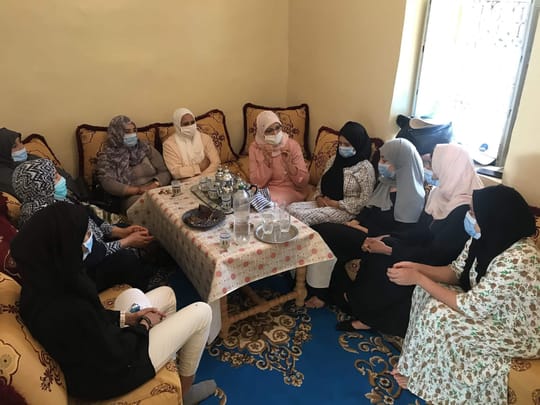On February 25, I attended on behalf of the High Atlas Foundation (HAF) the “High-Level Debate on Integrating Crime Prevention and Criminal Justice in the Post-2015 Development Agenda” with the United Nations Trusteeship Council in New York City. A full-day event, the debate featured multiple panels and interventions by the Moroccan delegacy.
This debate opened with a brief discussion centering on the agreed statement that reducing crime and violence is critical to sustainable development: “Reducing crime and violence and ensuring the rule of law are manifestly important to the everyday lives of people – to protect the vulnerable from exploitation, stop corruption from eroding public services, and free young people from the downward spiral of poverty, drugs, crime and violence.” – UNODC
Discussion led to topics towards how to achieve sustainable development, including the success and challenges in implementing comprehensive crime prevention and criminal justice policies. Key panelists included Morocco’s own Interministerial Delegate for Human Rights H.E. M. Mahjoub El Haiba, Mr. Luis Alfonso de Alba, Chair of the 24th session of the Commission on Crime Prevention and Criminal Justice, and Ms. Giselle Martin, Legal Advisor of CARICOM IMPACS.
El Haiba highlighted the progress Morocco has made in implementing criminal justice policies, namely the creation of the National Initiative for Human Development (INDH) in 2005, along with the promotion of participatory methods of development (an approach utilized by HAF) as tangible evidence of Morocco’s active support of crime reduction and human rights. Currently, HAF is advancing on a green agricultural initiative with youth in a detention center in Oujda. El Haiba also stated that Morocco acknowledges the strong link between crime prevention, criminal justice and sustainable development; thus its commitment to international cooperation and initiatives of the United Nations to eradicate the spread of organized crime, cybercrime, terrorism, money laundering, and to promote the rule of law, human rights and sustainable development.
The delegation specifically mentioned Morocco’s commitment to criminal justice procedures by mentioning the “Mohamed VI Foundation for the Reintegration of Prison Inmates,” which provides a Reintegration Preparation Service (SPR) while incarcerated, and maintains a Post-Release Support Centre (CAPC). The Foundation focuses on supporting youth and minors, allowing them to correct their behavior, return to school, and acquire skills in order to develop a career. The Kingdom has made significant advances in the protection of children’s rights, too, and not just in response to the need for prison reform. It is also concerned about human trafficking, the protection of women and children, and the situation of immigrants. As for the protection against cybercrime and terrorism, Morocco reiterated its strong and unequivocal position against terrorism and has enacted laws to protect its citizens from such crimes.
Other structural reforms being undertaken by the Kingdom emphasize well-being and encourages civil society participation in the modernization of Morocco. El Haiba noted that civil society contributes to criminal justice efforts via a Moroccan NGO: L’Observatoire Marocain des Prisons (OMP) to protect and promote the rights of prisoners, to monitor prison conditions in Morocco, and to provide legal assistance.
The afternoon session, chaired by the Permanent Representative of the Kingdom of Morocco to the United Nations Mr. Omar Hilale and the Permanent Representative of the Thailand to the United Nations Mr. Virachai Plasai, focused on the post-2015 development agenda. While the morning session discussed challenges and successes of the past, this afternoon session discussed strategies for fostering cooperation to promote crime prevention and criminal justice policies. A brief (3 minute) intervention from twelve countries (Brazil, Maldives, South Africa, Japan, Kazakhstan, Sweden, Nicaragua, Indonesia, India, China, United States of America, Russian Federation, INTERPOL, civil society organizations) summed up the panel, with all participants agreeing on the strong link between sustainable development and crime prevention. The 13th United Nations Congress on Crime Prevention and criminal Justice will be in April of this year, in Doha, Qatar.
Special thanks to the High Atlas Foundation for facilitating this opportunity: I saw the intervention of the UN Deputy Secretary-General, the head of UNODC, the Moroccans, Qataris, and many others. It was a great experience – one I won’t be forgetting any time soon!
Amal Faouzi, HAF Volunteer
Images by UN Photo/Devra Berkowitz; do not download or reproduce without prior permission of UN Photo Library
